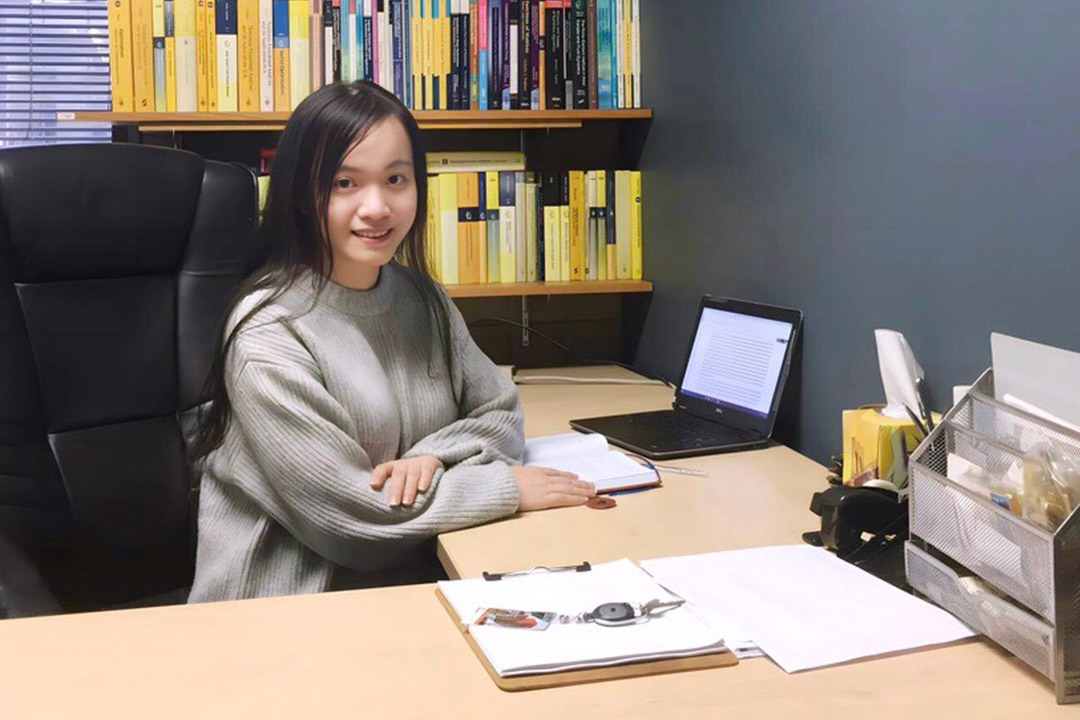RIT hosts Abel Visiting Scholar
Nguyen Thi Van Anh, lecturer at Hanoi National University in Vietnam, received prestigious grant for mathematics research
Abel Visiting Scholar Nguyen Thi Van Anh from Vietnam spent a month at RIT working with Professor Akhtar Khan.
Rochester Institute of Technology recently hosted Abel Visiting Scholar Nguyen Thi Van Anh, lecturer at Hanoi National University of Education in Vietnam.
The Abel Visiting Scholar Program allows professional mathematicians based in developing countries to visit an international research collaborator for one month. The program is funded by the Abel Prize in mathematics and is administered by the Commission for Developing Countries of the International Mathematical Union. Only three grants are available each year for applicants around the world.
Nguyen partnered with Akhtar Khan, professor in the School of Mathematics and Statistics. The main goal of Nguyen’s research visit was to examine the stochastic aspects of the elasticity imaging inverse problem of locating cancerous tumors, and to propose and analyze a new stochastic approximation scheme base on the heavy ball friction method for stochastic inverse problems.
“It is a tremendous honor for me to be here and to have an opportunity to do mathematics with a well-known professor,” said Nguyen.
Khan knows a professor who works with Nguyen and who connected the two to work on research together. Then, Nguyen applied for and received the grant, allowing her to come halfway across the world to work with Khan in person. The duo has been working hard on the fairly new component of tumors in a stochastic, or randomly determined, framework, which is a very complicated problem.
“We are working on many things,” said Khan. “We’ll continue on different aspects of the problem using more efficient models and doing more abstract things.”
Nguyen and Khan hope to publish a paper on their current research and continue to work together on other research and papers in the future.
“I want to complete this project with the highest results, and I also want to get an international connection related to our problem,” Nguyen said. “I enjoy working with Professor Khan and hope to work with him on more problems like this.”








